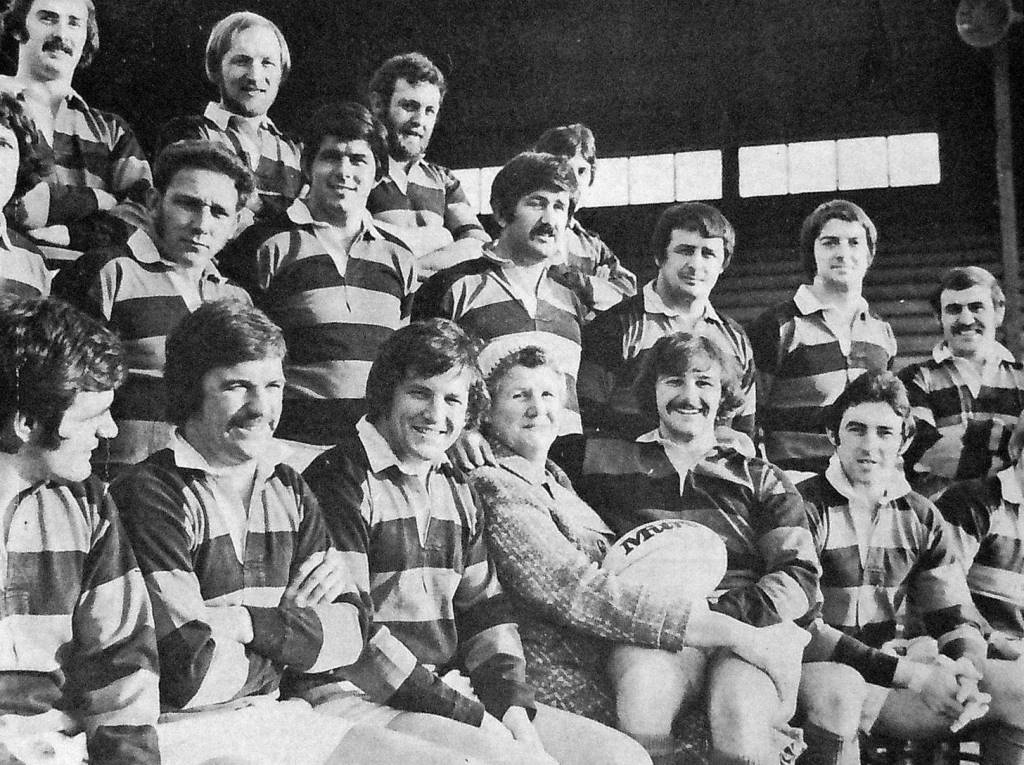Jackson column: The mother behind Aberavon’s wizardry

According to their most famous fan, Aberavon RFC once pioneered a novel form of pre-match entertainment in the shape of a goalkicking housewife.
Her name was Annie Mort. She lived around the corner from the ground in Port Talbot and Richard Jenkins once told how, as a boy, he saw her amuse the crowd in the Thirties by firing a volley of drop goals between the posts from as far out as 35 metres, off either foot.
The boy never did achieve his ambition of playing for a club renowned all over the British Isles as The Wizards. Instead he made it big as a film star after changing his name to Burton and marrying a beauty of the silver screen, Elizabeth Taylor.
Of all the colourful characters at all the grand old clubs from the amateur era, none can surely have had quite as many as Aberavon. A corner of their Pantheon has long been reserved for those as tough as the steel that made Port Talbot, men like Jim Evans, alias Jimmy One Arm.
He lost the other on the last day of the Great War in 1918. It didn’t stop the scrum-half from neighbouring Cwmavon renewing his career after the Armistice as well as doubling up at fly-half and in the back row whenever the situation demanded.
Charlie ‘Warhorse’ Jones also lost an arm in the same war and carried on as though nothing untoward had happened, as did One Arm Wilkins, a fly-half said to have mastered the art of using the stump as a potent weapon.
There was another scrum-half from Burton’s childhood, ‘Five Cush’ Cannon who sounded suspiciously like an invention from the billiards table. Burton swore the story was true, of how the final of an unnamed cup competition had gone to a fifth replay in thick fog when ‘Five Cush’ picked the ball out of a scrum in front of the posts and threw it over the crossbar.
Nobody being any the wiser, the referee gave the drop goal and the Wizards won 3-0. Tal Harris, another scrum-half between the wars, was a docker who sharpened his wits for Saturdays as a Wizard by fighting drunken Russian sailors.
That such tales have seen the light of day is thanks largely to club historians Howard Evans and Phil Atkinson. They also pay due tribute to Stanley Davies, a tee-total back row forward whose sending-off against the loathed local rivals from Neath in 1927 provoked such tribal warfare on the touchline that a vicar made a valiant attempt to restore law and order only to be knocked out for his trouble.
Since last weekend the Wizards have been mourning the loss of another, one whose name and status would strike the uninitiated as sounding distinctly familiar, Captain Mainwaring. The contrast between the pompous buffoon from Dad’s Army and the real McCoy could hardly have been more striking, in every sense of the word.
The same surname, very different pronunciations. Mainwaring, as in Billy, always spoken as spelt, never anglicised as Mannering. Over a decade and a half from the dawn of the Sixties when timid referees would often let the players impose their own rough justice, Mainwaring proved more durable than most.
The name had been revered among Aberavon’s wizardry well before Billy muscled his way into a team that had been crowned champions of Wales in 1960 for the only time. As a supporter without peer, his mother Evelyn reigned supreme at the Talbot Athletic Ground throughout her long life.
Her witticisms, once heard, were never forgotten, like the time her son lifted Gareth Edwards by the collar and held him in mid-air during an Aberavon-Cardiff match. “Put him down, Billy,” she boomed from the middle of the wooden stand. “He’s playing for Wales next week.”
And when Evelyn made the long journey to Edinburgh for her son’s debut for Wales in 1967, she did so worried about the state of his elbow after an accident in training.
“I saw his second row partner, Brian Price, before the match and asked him to take care of my boy,” she said. “And he said: ‘Your Billy is big enough to take care of himself, Mrs Mainwaring.’
“Then that nasty Jim Telfer (Scotland‘s No. 8) hit our Billy after about ten minutes but it knocked his elbow back into place. He was all right after that.”
One of the biggest and best to roll off the assembly line from the famous Taibach club in Port Talbot, Mainwaring grew up in the same street as another of the steel town’s matinee idols by the name of Anthony Hopkins who, unlike Burton, had no interest in rugby.
While Burton pledged his ‘continuing allegiance to the town, Aberavon and its rugby team until death’, Hopkins concentrated on going one better than his compatriot, winning an Oscar for his portrayal of Dr Hannibal Lecter in The Silence of the Lambs.
The youngest of the town’s holy trinity of actors, Michael Sheen, tells of earliest memories of “watching the Wizards with my Grampy, freezing cold and listening to the glorious Mrs Mainwaring ‘urging’ Billy and his boys and me trying to summon up the courage to pipe up and join in”.
Evelyn passed away in 2004, her 90th year. Now Billy’s gone at 78, guaranteeing that old team-mates and friends will converge from near and far on Margam Crematorium at midday on Wednesday for the larger convention of Wizards than any run by the Magic Circle.